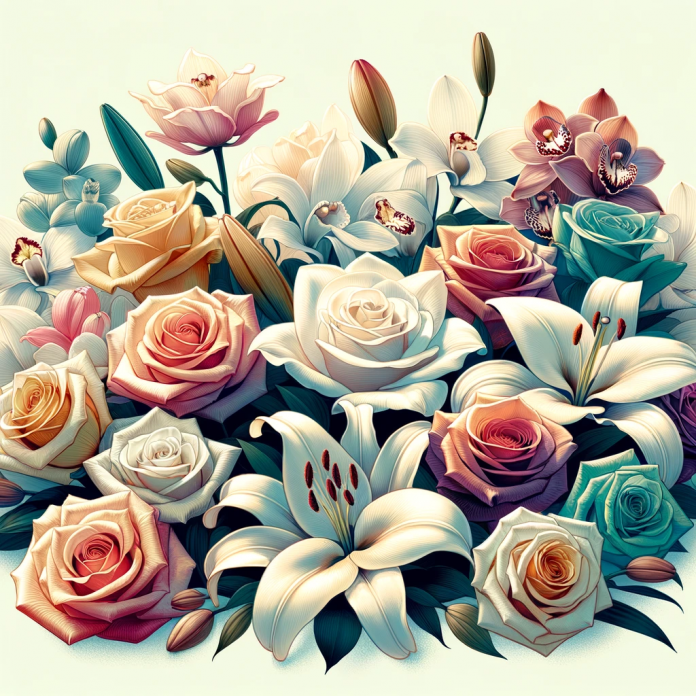Flowers have been a significant part of funeral rituals across cultures and throughout history. Their vibrant colors and fragrant scents serve as a poignant reminder of the beauty and transience of life. But beyond their aesthetic appeal, flowers carry profound symbolism and meaning, particularly when used in funerals.
The History of Flowers in Funerals
The tradition of using flowers in funerals dates back to ancient times. In many cultures, flowers were used to adorn the burial sites and to pay respects to the deceased. The Greeks, for instance, used flowers and plants to honor their dead, while the Romans placed floral wreaths on graves as a sign of respect.
In the Victorian era, the language of flowers, also known as floriography, was developed. This allowed people to express emotions and sentiments that society deemed inappropriate to voice out loud. In this context, flowers became powerful symbols of love, grief, and respect at funerals.
Symbolism of Common Funeral Flowers
Roses
Roses are one of the most commonly used flowers in funerals. The color of the rose often determines its meaning. Red roses symbolize love and respect, while white roses represent purity and innocence. Yellow roses are typically used to symbolize friendship, and pink roses often denote love and appreciation.
Lilies
Lilies, particularly white ones, are another popular choice for funerals. They symbolize the restored innocence of the soul of the deceased. The stargazer lily, with its striking pattern and colors, represents the heavens and the eternal life of the soul.
Orchids
Orchids are often associated with beauty, strength, and love. In many cultures, they are seen as a symbol of eternal love. The color of the orchid can also influence its meaning. For example, white orchids symbolize purity and innocence, while pink orchids represent grace and joy.
Choosing the Right Flowers for a Funeral
Choosing the right flowers for a funeral can be a deeply personal decision. It often depends on the relationship with the deceased, cultural or religious traditions, and personal preference. Some people may choose flowers that were loved by the deceased, while others may select flowers based on their symbolic meanings.
It's also important to consider the message you want to convey. For example, if you want to express deep love and respect, you might choose red roses. If you wish to convey a message of eternal love, orchids could be a fitting choice.
Flowers in Different Cultural Funeral Traditions
Christian Funerals
In Christian funerals, flowers are often used to adorn the casket and the church. They serve as a symbol of love and respect for the deceased. The types of flowers used can vary widely, but roses, lilies, and carnations are commonly used.
Buddhist Funerals
In Buddhist funerals, flowers are used to express respect and reverence for the deceased. White flowers, particularly white lotus flowers, are often used as they symbolize purity and spiritual awakening.
Hindu Funerals
In Hindu funerals, flowers play a crucial role in the rituals. Marigolds and roses are often used, with marigolds symbolizing the sun and the vibrancy of life, and roses representing the soul's journey to immortality.
Conclusion
The use of flowers in funerals is a tradition steeped in history and symbolism. Each flower carries a unique meaning, adding a layer of depth and sentiment to the funeral proceedings. Whether used to express love, respect, or spiritual beliefs, flowers continue to serve as a powerful symbol in our farewell to the departed.
Understanding the symbolism and meaning of funeral flowers can help us make thoughtful choices when honoring our loved ones. It's a beautiful way to pay tribute, express our emotions, and find comfort in the face of loss.


-banner.png)





